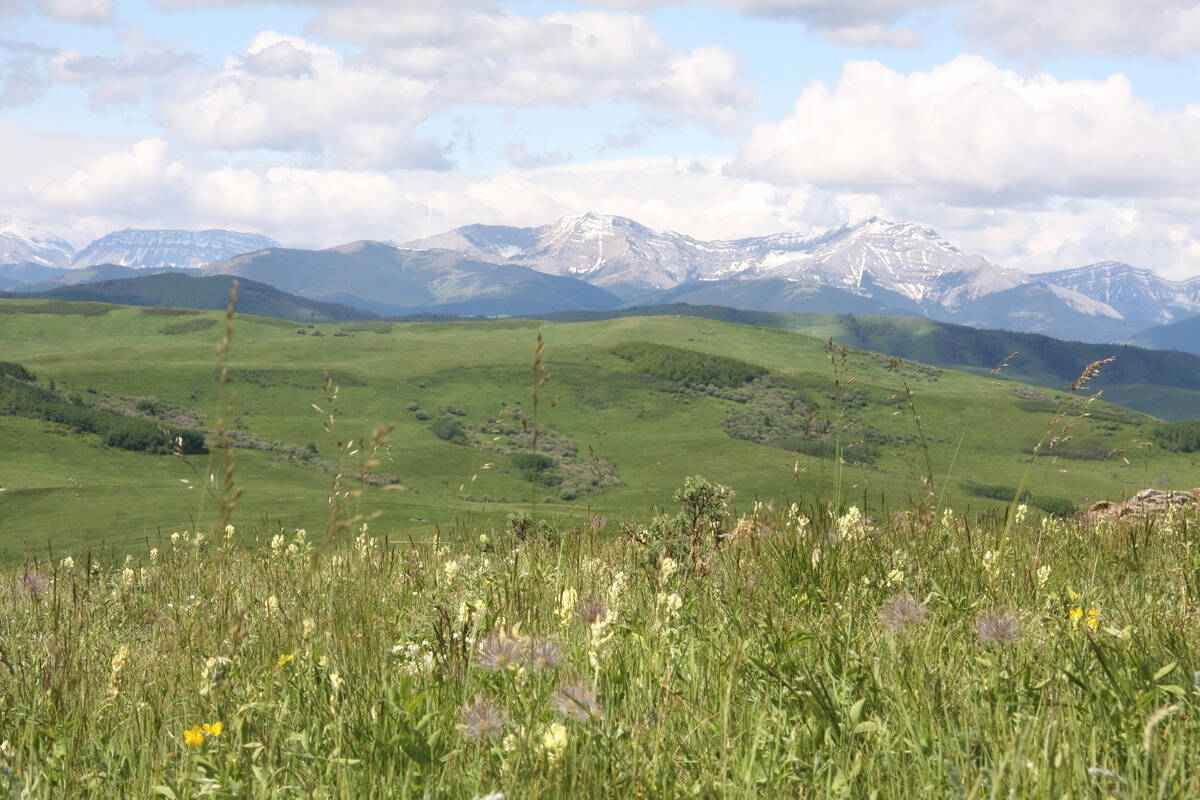Mike Mucz has a newfound respect for Ukrainian pioneer women.
The Augustana University College professor was never ashamed of his Ukrainian heritage, but after interviewing hundreds of Ukrainian pioneer women about traditional home remedies, his admiration for his people grew.
“It’s so hard to believe what they went through and what they accomplished with nothing,” said Mucz of Camrose, whose parents immigrated after the Second World War.
The one word he heard repeated, over and over was “terpeeteh”. (We suffered.)
“It’s not part of our vocabulary,” said Mucz, but it was an integral part of early pioneer life the professor learned while interviewing women about traditional home remedies of Ukrainian pioneers.
Read Also

Selenium not deal breaker in coal mining: expert
Environmental scientist weighs in on coal mining debates in Western Canada, explaining selenium and the technologies and practices to lower its concentrations in nearby waterways to coal mining operations
They recalled treatments for sore throats, cuts, headaches and fever, but there were many ailments bread and milk poultices wouldn’t fix.
“In severe cases they put their hand on the sick person’s shoulder and said ‘You’re in God’s hands now.’ “
The book began as an idea from Julie Hrapko, curator of the plant collection at the provincial museum. She suggested, Mucz, a biology professor at Augustana, study the use of plants by various ethnic groups.
When he began his work a few years later, many of the original pioneers had died.
“It haunts me to this day. If I had done this 10 years earlier I could have talked to some of the original people.”
What Mucz found out surprised him.
He expected the pioneers to use more native plants for healing. Instead, they used familiar plants from their garden such as cabbage, potatoes and raspberries.
For headaches, they sliced cool potatoes from the root cellar and wrapped them around the forehead with a scarf.
For sore throats they gargled with salt water and wrapped a scarf around their neck.
For infection they applied a bread and milk poultice. For serious infection they sometimes plastered manure to the wound.
When Mucz asked one woman what she did to ease the pain of chapped feet, she hung her head in shame.
“She was embarrassed to say they peed on their feet. They were embarrassed talking about it because it was so primitive.”
Mucz later learned many modern healing creams contain uric acid, as urine does.
Many hardships
Another woman broke down crying when she recalled the hardship of her life. As a young bride she worked alongside her husband chopping down trees to clear their homestead. With her skirt tucked between her legs, her bare flesh bled from the rosebush cuts. At the end of the day she didn’t come home to a warm shower, but a cold house and a wood stove.
“It made me realize the strength of the people and their contribution to our province. I saw how they loved the land. They worked 25 hours a day, but didn’t want their children to. The parents always wanted their kids to have a better life.”
It was when the children went to school that many of the old remedies were lost. The children didn’t want to tell their classmates they ate garlic or gargled with salt water, when their English classmates got help from the drugstore.
“They became ashamed of sharing and practising these practices.”
Mucz never asked the women to validate remedies. But those he interviewed repeated them over and over with only slight variations.
Mucz began his research by talking to women in nursing homes in eastern Alberta where there were large Ukrainian settlements. From there he was given names of other women who remembered traditional home remedies.
Like today, women seemed to be the primary caregivers. The men either weren’t talkative or didn’t have much to say on home remedies, said Mucz.
The one area he didn’t cover was “female problems.” Older women weren’t comfortable talking about these with a man. They told him about drinking raspberry tea to ease labor pains and massaging a uterus back into place, but not much else. He never addressed birth control or abortion.
Mucz recorded his conversations. Copies of those conversations and a transcript will go into the provincial museum archives. He hopes to finish writing the book on his next sabbatical from Augustana.
He encourages anyone with traditional home remedies to write to him: Mike Mucz, Augustana University College, Camrose, Alta., T4V 2R3.














